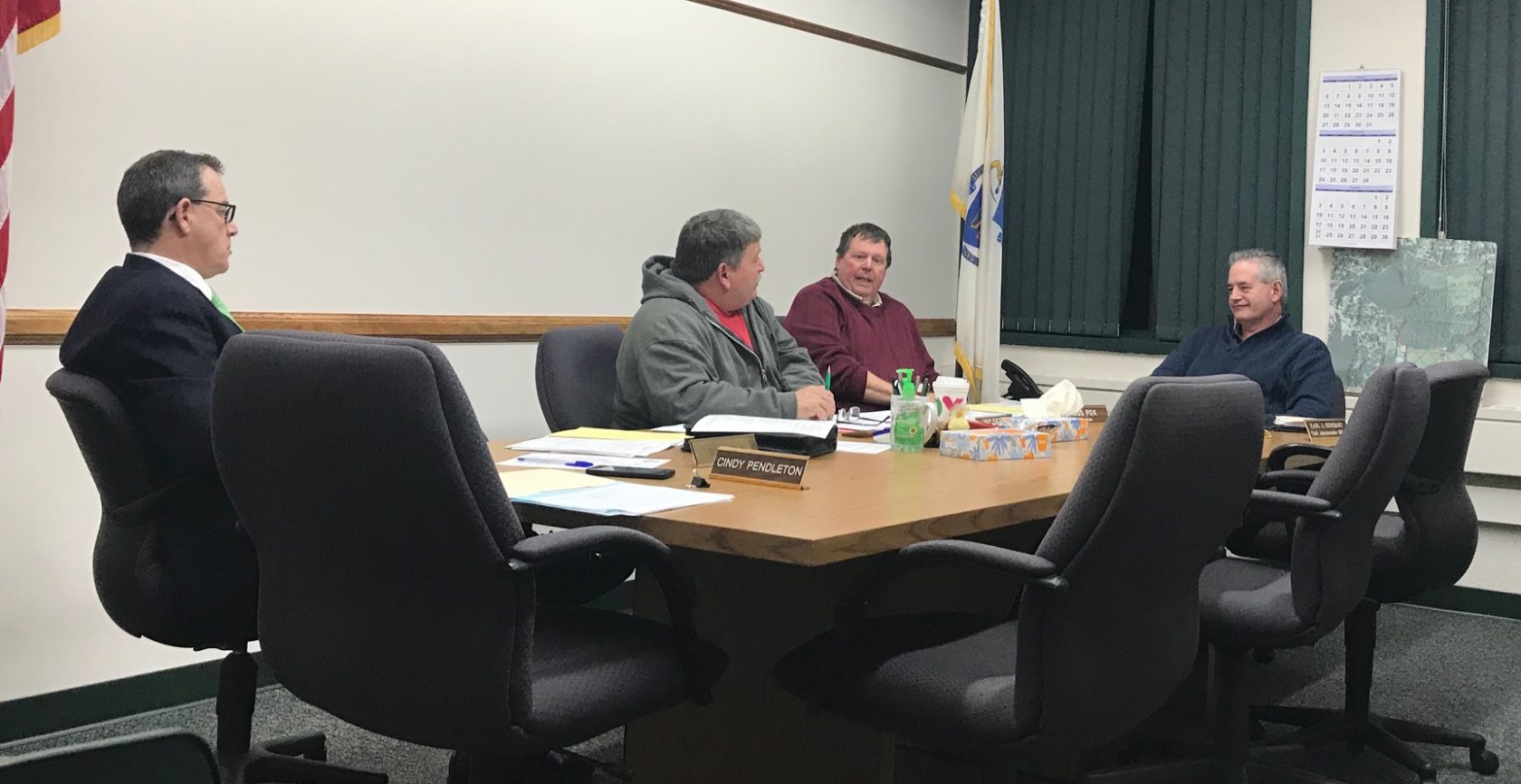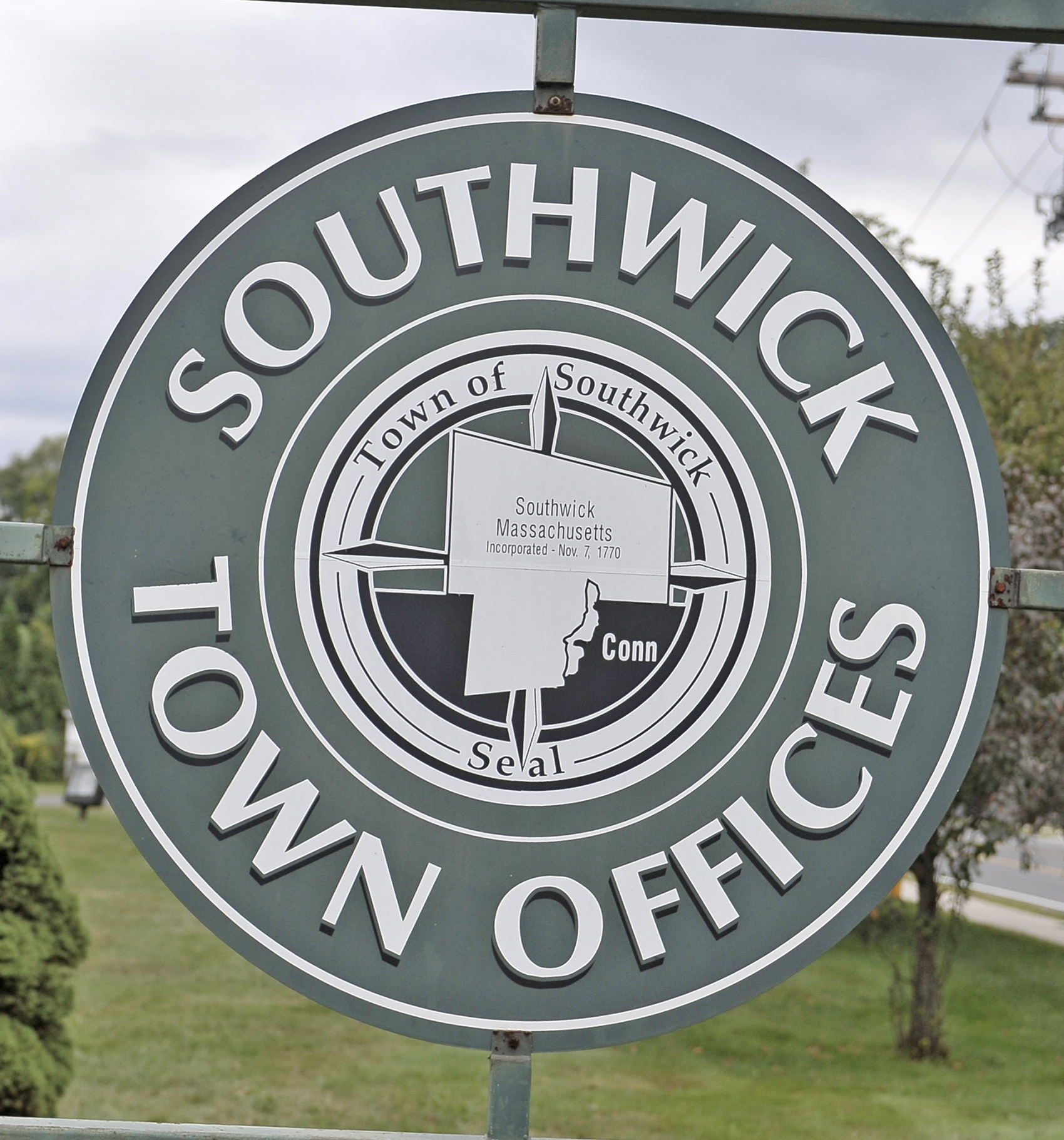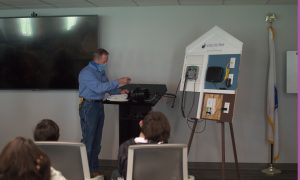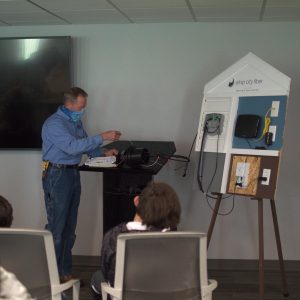SOUTHWICK – The Select Board is continuing to discuss the option of using Whip City Fiber as the town’s internet provider. On November 14, Westfield G& E employees had an informal discussion with the Select Board and gave them some information about Whip City Fiber.
On Monday night, the Select Board pointed out that although it’s too early into the discussions to figure out whether they want to use Whip City Fiber, they’re willing to form a committee to examine the possibility. The committee would consist of people throughout Southwick who would express both the positive and negative opinions about Whip City Fiber in order to have a complete picture of the option.
“It can’t hurt to have more of a frank discussion about this,” said Select Board Chairman Joe Deedy.
Select Board Clerk Doug Moglin has done research and sees that some nearby communities have gone various routes with Whip City Fiber. Some cities or towns had Westfield G & E do the build, but have another company do the design and vice-versa.
“There’s been divergent results, whether they want it or don’t want it,” said Moglin.
In 2015, Westfield G & E was approved $15 million in bond money from the City of Westfield to provide high speed and fiber optic internet to 70 percent of Westfield. That same year, Whip City Fiber started being offered to a few neighborhoods in Westfield.
Currently, Westfield G & E has been appropriated by the city to cover 70% of Westfield with Whip City Fiber. When speaking to the Select Board, Richard Carnall and John Leary of Westfield G & E acknowledged that they’re working with 20 hilltowns in Massachusetts on installing Whip City Fiber in those respective communities.
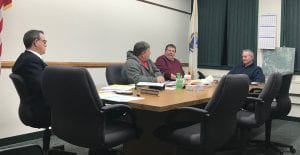
The Select Board is discussing forming a committee to look at Whip City Fiber. (Photo by Greg Fitzpatrick)
The process in Westfield involves Westfield G & E employees examining the utility poles in the community where the fiber will be installed. It needs to be determined that there’s enough space for the fiber to be on the existing utility poles. An underground investigation then ensues, which involves figuring out the location of underground utilities.
On the Whip City Fiber page on the Westfield G & E website, it notes that once the installers go to a residence to install the fiber, it could take up to four hours.
Carnall and Leary also informed the Select Board that about 30 to 40 percent of the money spent on the project goes towards working on the telephone poles.
The two Information Technology professionals from Westfield G & E said that a lot of the hilltowns had very little or no internet prior to Whip City Fiber becoming an option in their town. A major issue for the hilltowns is that the younger adults and teenagers in those communities flee from that particular area due to no or bad internet connection.
Moglin noted that he’s heard stories in the past of kids in Tolland driving up to spots in town like the library, just to get Wi-fi.
The installation of Whip City Fiber in the 20 hilltowns should be completed by 2021 or 2022.
Pointing out that Whip City Fiber costs $60,000 per mile and Westfield G & E can’t spend capital on this project outside of their own city, Carnall and Leary don’t want the Select Board to only think of how daunting the process is.
Currently, Southwick has Comcast as their internet service provider.
Although Carnall and Leary told the Select Board that they wouldn’t be able to begin installing Whip City Fiber into portions of Southwick until they are finished in Westfield, they did strongly suggest that the town form a sub-committee to further discuss it and even create a survey to see what residents and businesses think about the possibility of Whip City Fiber.
During the discussion on Monday evening, the Select Board agreed to begin the process of forming a committee and will look to have one formed in the spring near the annual town meeting in May.

